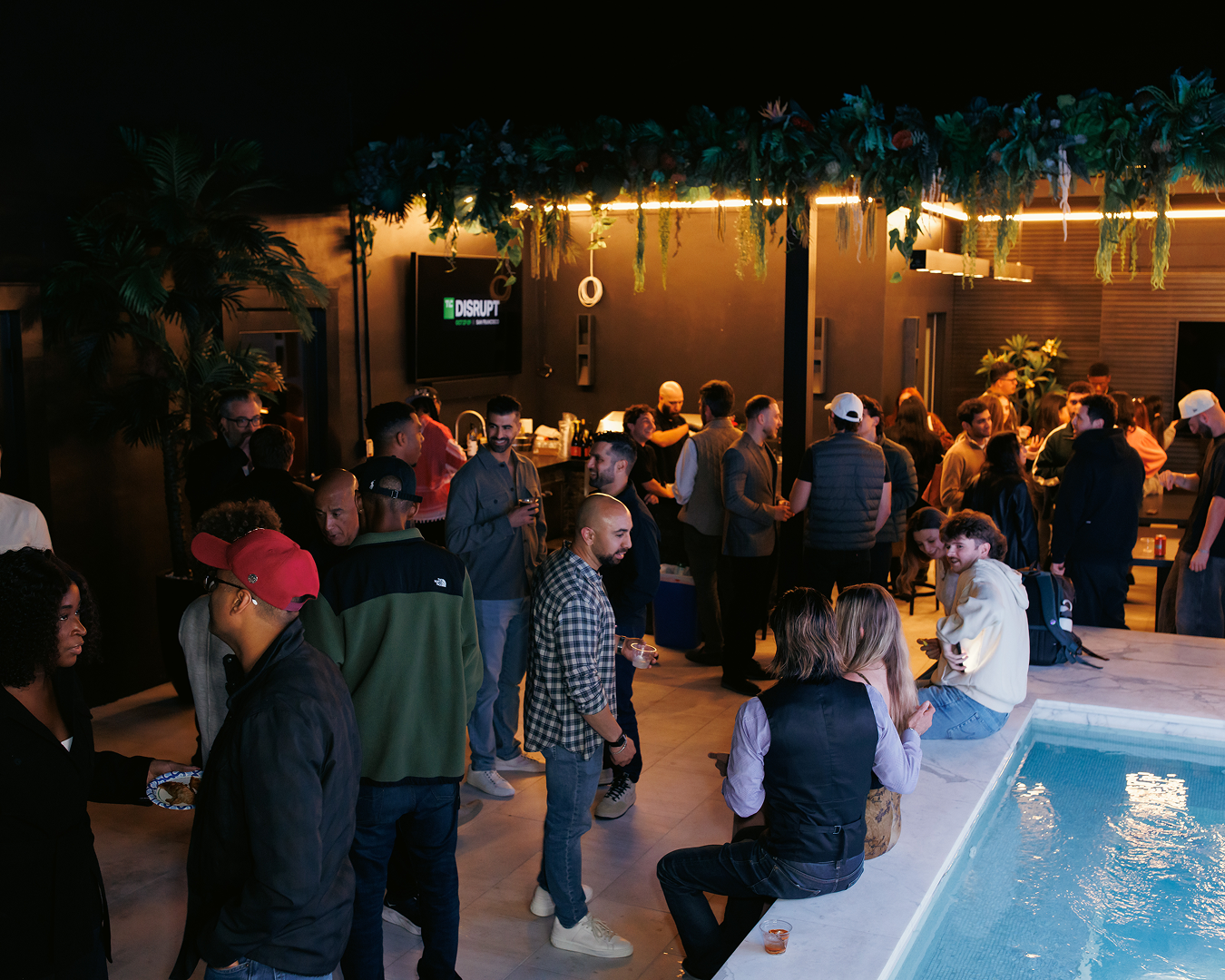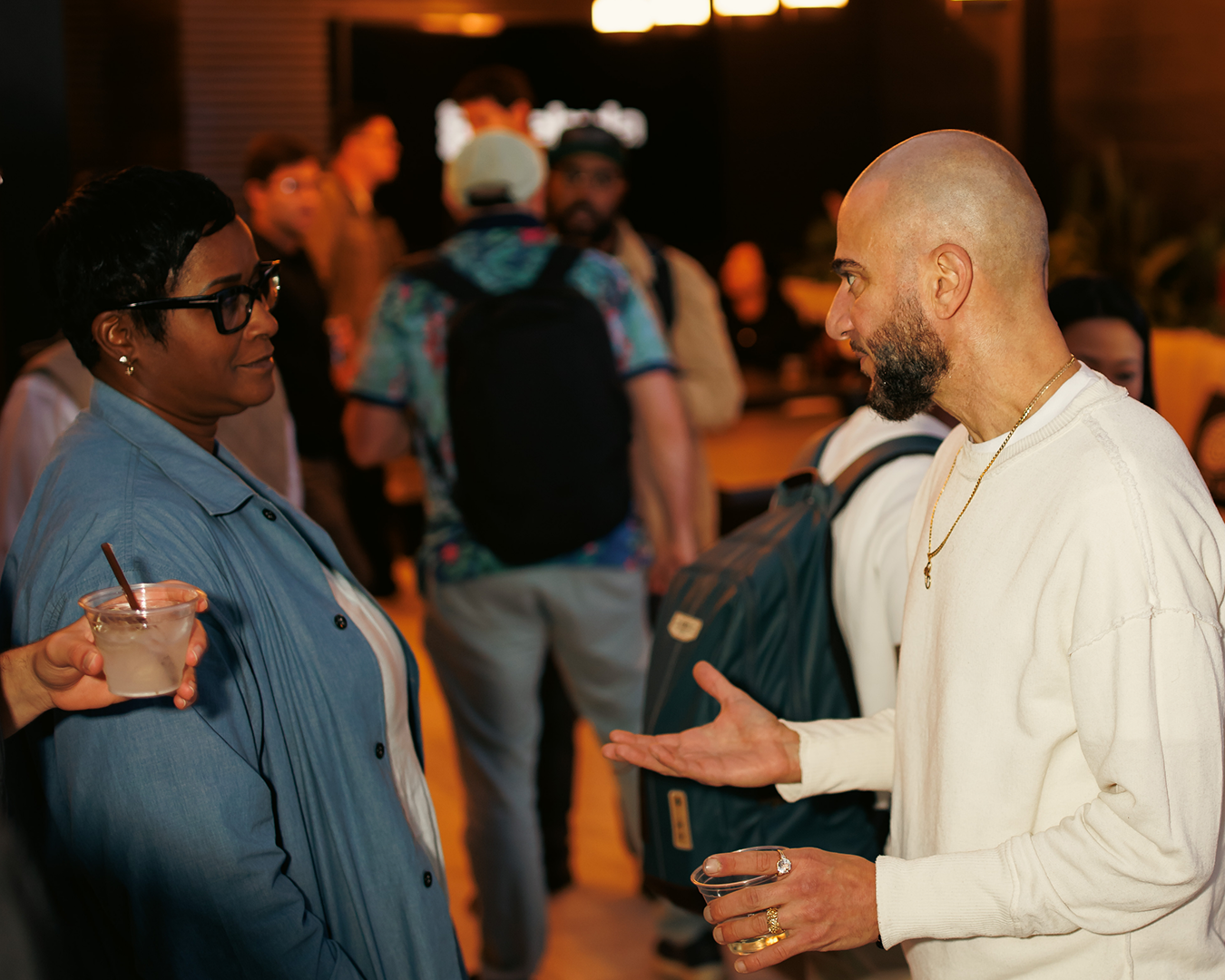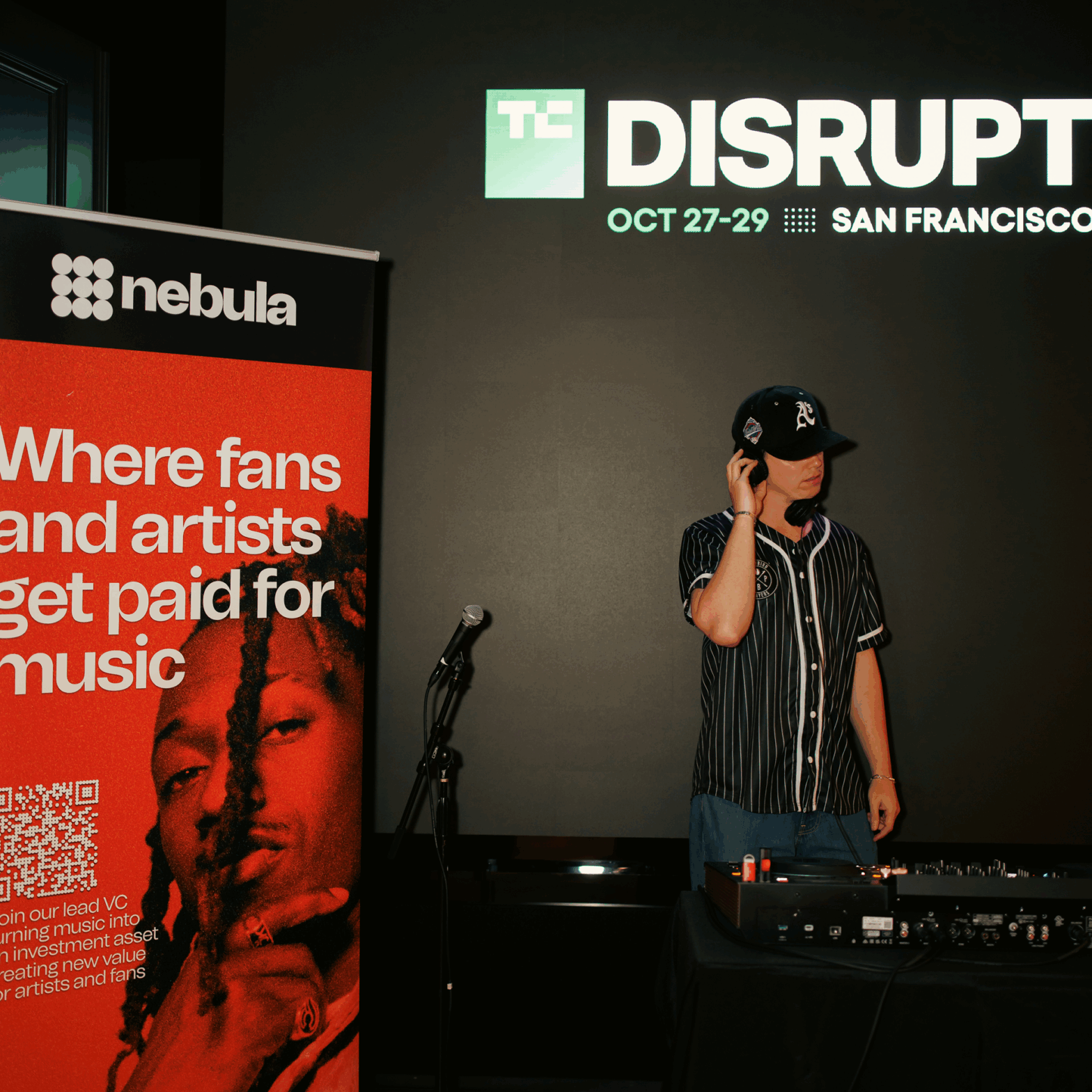TechCrunch Disrupt is the proving ground for the globe’s biggest new ideas in tech, and one startup, Nebula, demonstrated that the future is about more than just code—it’s also about culture. Amid the intense three-day challenge of pitches and investor meetings in San Francisco, the buzz around Nebula was undeniable. However, it was our much talked-about after-party sponsored by music giant EMPIRE that truly stole the show. Silicon Valley and the music world met for a memorable moment where the new direction for new music economics were defined. TechCrunch solidified our position as the startup to watch leading the wave for a new business reality for artists and fans alike.
Startup Battlefield 200 at TechCrunch Disrupt
Who made the cut? At 9 AM PDT on Wednesday, August 27, 2025, TechCrunch unveiled the 2025 Startup Battlefield 200. The annual, handpicked list of the 200 most promising early-stage startups from around the world. These founders rose to the top from thousands of applications spanning every industry and geography. Their reward was a coveted spot to exhibit at TechCrunch Disrupt 2025, taking place October 27–29 in San Francisco’s Moscone West. Time and again, this group proves itself to be the cohort to watch.
The event offered three days of pitches, panels, and investor conversations that can launch a company into orbit. Moscone West was filled with over 10,000 entrepreneurs and investors chasing that next big signal. Among them, we stood out. Mainly because of what happened on Day 2 when the conference hit its peak.
The buzz on the streets of San Francisco was loud. And Nebula let Silicon Valley know why it’s the most exciting consumer startup to watch.

That night, Nebula and EMPIRE hosted what became the most talked-about event of the week—an after party that blurred the lines between technology and culture, and in the process, will define the future of music economics.
The Perfect Venue: EMPIRE’s Music Recording Studios
EMPIRE has released music by artists including Kendrick Lamar, Anderson .Paak, Shaboozey, Fat Joe, Tyga, Asake, Fireboy DML, XXXTentacion, G-Dragon, Philthy Rich, Young Dolph, Key Glock, King Von, Tink, Black Sherif, Yung Bleu, D Smoke, T-Pain, Snoop Dogg, DRAM, Cardi B, and Emtee, among others.
It is the kind of venue that has seen dreams turned into global success.
For more than a decade, Ghazi and his team—Nima Etminan and Tina Davis—have built EMPIRE into the model for how artists can thrive without traditional gatekeepers. Hosting Nebula’s event wasn’t just logistics; it was symbolic alignment between two camps of innovation.
Tech meets tracklist. Code meets culture. The independent movement meets the digital frontier.

Sponsored and powered by EMPIRE, the event embodied what both companies represent: transparency, creativity, and control in the hands of the people who create value.
A Night of Real Connection
Inside EMPIRE’s studio, the crowd looked nothing like a typical tech conference mixer happy hour.

Nebula’s co-founders moved effortlessly through the studio rooms where platinum records had been mixed. The crowd itself was a fascinating sight: A&R managers, artists, and music executives shared the floor with startup founders and investors. As guests toured EMPIRE’s legendary recording spaces, conversations sparked organically around crucial topics like funding models, music rights, and creator ownership. This mix was entirely deliberate.
We at Nebula weren’t merely showcasing a product; we were actively demonstrating a vibrant ecosystem where technology, finance, and creativity could finally coexist. On an international level.
Day 2 at TechCrunch Disrupt was at full throttle. Founders pitched, investors were in deep conversations, and when dusk set, the city was alive with official side events. Amid all this noise, Nebula’s after party cut through.
We didn’t want the classical business gatherings that leaned on branding and cocktails. Instead, we created an environment that felt purposeful. EMPIRE Studios, with its track record of independence, carried authenticity that no rooftop venue could match. In a week where everyone was chasing the next big event, Nebula hosted the one that truly mattered.

The top executives were all there, including EMPIRE’s Ghazi, Nima, and Tina Davis, alongside Nebula’s co-founders Alessandro De Luca, Fuad Hawit, and Yamen Hawit. Many conversations revolved around the same topic: how to build the music economy for musicians and creatives from the ground up with solid foundations and sensible incentive systems in place. Guests weren’t networking; they were strategizing the next music economy and how to make things better for artists and fans alike.
Rewriting the Code of Music Economics
The traditional model of music economics has long favored intermediaries over creators. Nebula is changing that narrative.
The company is developing transparent infrastructure that connects creators, investors, and audiences directly—reducing friction, increasing visibility, and empowering artists and fans with new forms of ownership and revenues.
EMPIRE is San Francisco’s physical home of independent music success, and hosting this conversation inside EMPIRE Studios made our vision tangible.
Nebula transforms music into an investment asset using AI and blockchain technology. We don’t take business away from current industry players; instead, we add new value and effectively increase the size of the economic pie.
Today, while creating and publishing music is easy and cheap, cutting through the noise is very difficult. The internet is a crowded place. Nebula solves this: an artist can offer their unreleased music on our marketplace just days before the official launch. They invite their fanbase to listen, and if fans like what they hear, they can invest directly in the music.
Nebula Is Not A Brand, It’s A Movement
In the days following Disrupt, Nebula’s name kept surfacing in conversations across the conference floor. Mentions in investor meetings. Social posts from artists and founders who attended.
It was the kind of organic buzz startups dream about. A signal that cuts across industries and demographics.
While hundreds of companies pitched on stage, Nebula did something harder: it created a shared moment that people wanted to be part of. A movement that echoes a new value system for creators and fans.

